Members of Pakistan’s Scheduled Caste communities are making inroads in the country’s political landscape and being honoured at the highest levels. But without affirmative action, systemic change and implementation of laws and court orders that uphold rights, their struggle for equality continues.
By Shaeran Rufus
Kishore Kohli*, 39, an agricultural labourer in Pakistan wants to migrate to India along with his eight-member family. He is a Dalit, a community once called ‘untouchable‘, also known as Scheduled Castes. He has lived all his life in Pakistan’s south-eastern Sindh province.
Considered the lowest-ranked in the Hindu caste hierarchy system, Pakistani Dalits, like other religious and ethnic minorities, continue to struggle for their political, economic, and social rights.
Bigotry and bias against non-Muslims has become common, Kohli told Sapan News from his village in Khipro, in Sanghar district bordering India. He said that at least 50 other families in Khipro are making similar plans. They know that starting afresh will be difficult, but hope the move will improve their position socially and financially.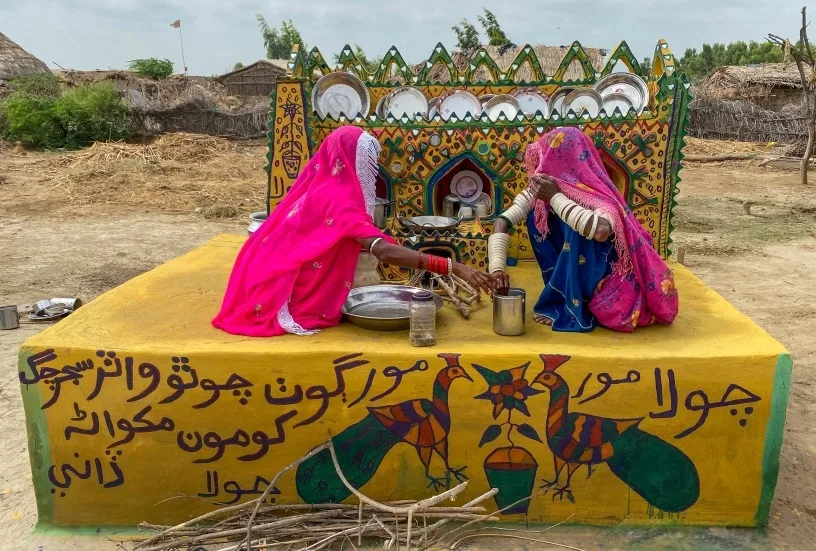
Pakistan has 32 scheduled castes, listed in a 1957 Presidential Ordinance. The Pakistan Bureau of Statistics 2017 reports under a million (0.849 million) Scheduled Caste citizens. The vast majority (0.831 million) live in Sindh province.
Pakistan’s first law minister Jogendra Nath Mandal, a Dalit from Bengal, had stood with the country’s founder Muhammad Ali Jinnah, believing that Dalit-Muslim unity would prevail. He resigned in 1950, barely three years later and left for India, never to return.
Debt of endurance
Historically relegated to menial jobs, Dalits have long endured physical violence and forced labour. They are barred from ‘upper caste’ temples and denied access to education, political participation and healthcare.
Pakistani historian Dr Mubarak Ali in his book Achoot Logo Ka Adab (Urdu, Literature of Untouchables) notes that the work assigned to the Dalits, based on their hereditary caste, included manual scavenging, leatherwork, sanitary work and handling funeral ceremonies. This is the case around Southasia.
Caste discrimination has cropped up elsewhere too, with expatriate communities carrying this baggage to other countries. In the West, this has catalysed resistance movements like Dalit Lives Matter.
”Dalits face dual discrimination, first as a Hindu minority, and then as a lower caste,”
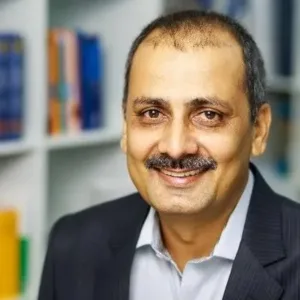
Zulfiqar Shah, a former journalist and member of the Pakistan Dalit Solidarity Network and the Sindh Human Rights Commission told Sapan News. He was also the Pakistan researcher for a study titled, Long behind schedule – A study on the plight of schedule published by the Indian Institute of Dalit Studies (2008).
The study revealed that nearly half (more than 48%) of the Scheduled Caste community in Pakistan worked as agricultural labourers and daily wage earners. Mostly bonded labourers, they endure deplorable living conditions, worsened by natural disasters. Those in remote rural areas have limited access to education, proper healthcare, and safe drinking water. With few opportunities for decent livelihood, they are more susceptible to debt bondage.
Even when they manage to escape bondage, the police are reluctant to file cases against landowners under the Sindh Bonded Labour System (Abolition) Act 2015, as the Hari Welfare Association has noted in its reports.
Without affirmative action, Dalits remain marginalised due to a lack of human and financial resources, Shah told Sapan News. He advocates for the state to take specific actions to uplift them like allocating five acres of land to individuals.
Pirbhu Satyani, a member of Pakistan’s National Commission on the Rights of the Child
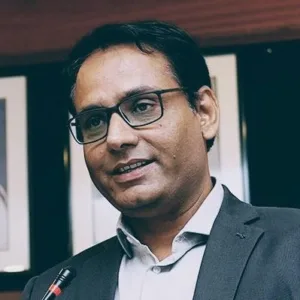
(NCRC), told Sapan News over the phone from Islamabad that while caste discrimination is a criminal offence in India and Nepal, there is no specific corresponding law in Pakistan.
Like other low-income groups, Pakistan’s Scheduled Castes often lack recourse to justice.
The Dalit Sujaag Tehrik, a movement-turned-political party founded in 2016, advocates for a reserved job quota for this community in various fields, including politics, the economy, and social spheres. Even educated Scheduled Caste members still face prejudices, Radha Bheel told Sapan News over the phone.
Attempting to improve the representation of Scheduled Castes in parliament, several of the Tehrik’s candidates, including Bheel, stood for elections for the first time in 2018. Bheel had planned to contest the February 2024 provincial and national elections, but withdrew her candidature due to lack of resources.
Reserved seats
The military regime of Zia ul Haq introduced a separate electorate system in Pakistan with
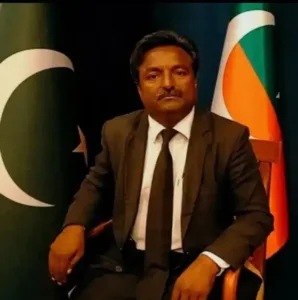
reserved seats for non-Muslims. While opposed by human rights advocates, this change empowered Scheduled Castes to vote for their contested member, says another member of the Bheel community, advocate Sarwan Bheel, founder of the Pakistan Scheduled Caste Alliance.
In 2002, General Pervez Musharraf’s military dictatorship revived the joint electoral system. Although widely appreciated, it limited the Scheduled Castes’ ability to contest based on merit, Bheel told Sapan News.
He explained that the joint electorate allows upper-caste Hindu members to secure seats as political parties distribute tickets to more powerful candidates.
Sarwan Bheel told Sapan News that there are more than 200 passport applications daily from each of Sindh’s seven divisions. He sees this as an indication of people’s desire to go abroad for better opportunities.
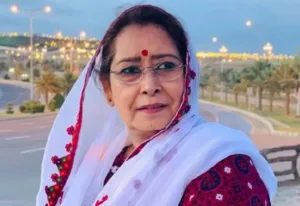
Some Scheduled Caste members do reach parliament, asserts Mangla Sharma, a member of the coordination committee of Muttahida Qaumi Movement-Pakistan (MQM-P) who was a member of Sindh’s provincial assembly 2018-2023 as an MQM candidate. She is also managing committee member of the Pakistan Hindu Council.
Sharma believes that Dalits have a “good representation” in parliament. She gives the examples of Dalit social activist and political worker Krishna Kohli, a former bonded labourer from Nagarparkar village in Tharparkar district, and Surendar Valasai, a Dalit journalist-turned-politician. Valasai was recently re-elected to the Sindh Provincial Assembly on a Pakistan People’s Party ticket,
But the segregation of Scheduled Castes and Hindus in the census has deepened the rift between upper and lower caste Hindus, she told Sapan News, and political achievements and awards to Dalits don’t change the reality on the ground.
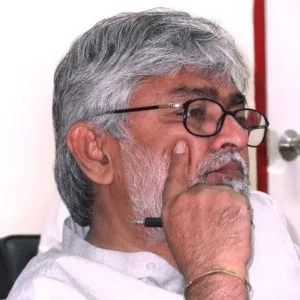
Sonu Khangarani, head of the Thardeep Microfinance Foundation and a recipient of Pakistan’s Tamgha-e-Imtiaz (Medal of Excellence) 2010, is keenly aware of the discrimination and challenges his community faces.
While Dalits in India face atrocity, abuse and exploitation, in Pakistan there is “discrimination and distancing in the social and economic domains,” Khangarani told Sapan News.
Oppressed from within and without
As members of Pakistan’s rural communities, Dalits are more vulnerable to climate change and its adverse effects. Sindh was the province worst affected by the 2022 floods.
Sindh also recorded more than 700 suicide cases, according to the report ‘Registered Cases of Suicide in Sindh (2016-2020)’, Sindh Mental Health Authority. Districts with high Dalit populations, predominantly in Tharparkar and Umerkot witnessed the highest numbers of deaths.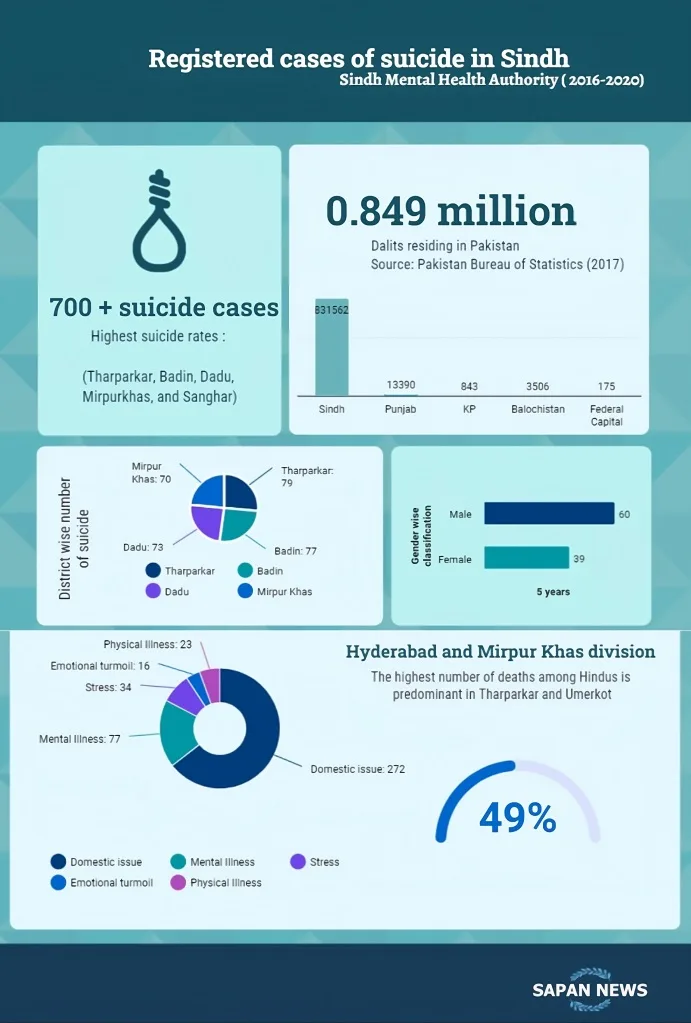
Even in death the community faces problems. Sindh’s Scheduled Caste communities traditionally bury their dead rather than cremating them. Now, encroachments on their traditional burial grounds pose a major challenge. The Scheduled Caste community in Sanghar district, for example, is forced to bury their dead in a new location approximately 35 kilometres away.
Due to extreme fear, no one approaches the police for help, alleges a student from the Scheduled Caste community who asks not to be named.
The District Commissioner Sanghar, Imran-ul-Hassan Khowaja told Sapan News that having recently been posted here, he has not encountered any such complaints. He promised to resolve the matter if brought to his notice.
Many of these graveyards are government-owned lands. In Umerkot, a medical shop
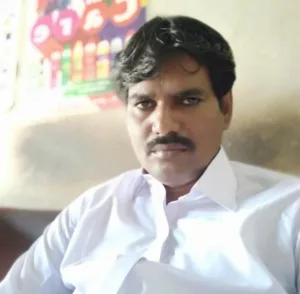
owner, Jamal Harji Bheel, says that the courts do provide relief –the session courts, civil courts, anti-encroachment courts, and the Sindh High Court have all ruled in favour of Scheduled Caste community petitions against graveyard encroachments.
On 28 Oct. 2020, under Sindh Public Property (Removal of Encroachment) Act 2010, the presiding officer of the Anti-Encroachment Tribunal, Mirpurkhas directed the authorities to remove the encroachment from the “state property.”
The concerned authorities submitted a compliance report and photographs stating that they had removed the encroachment. The Judge dismissed the case on March 20, 2023. However, local sources like Bheel, and his lawyer Nabi Bux Narejo, contend that only half of the encroachments have been removed.
Supreme Court Justice Tassaduq Hussain Jillani in a celebrated ruling of 2014 ordered the establishment of a task force that specifically addresses issues related to minorities.
However, until 2018, no action had been implemented on this ruling, prompting the Human Rights Commission of Pakistan (HRCP), Centre for Social Justice (CSJ), and the Cecil and Iris Chaudhry Foundation to file a lawsuit.
In 2019, the Supreme Court formed a One-Man Commission on Minority Rights, headed by retired police official Dr Muhammad Shoaib Suddle. In January this year, Dr Suddle visited various districts, including the capital Karachi, besides other cities. He held hearings attended largely by Dalits from Sindh’s underdeveloped areas with longstanding issues, along with district administration and police officials.
Ten years after the original ruling, local sources say that the issue remains unresolved.
Unless the state takes note of issues faced by oppressed communities and moves to improve their situation, such encroachments on the Dalits’ burial lands will continue symbolise their position in society.
*Name changed to protect identity;
Shaeran Rufus is a Karachi-based independent journalist passionate about human rights, social issues, and minority advocacy. With a degree in media studies from Bahria University, she has worked at Capital TV and Express Tribune. She is a Fellow of the Pakistan Press Foundation. She tweets at @ShaeranRufus.
Note: The above piece was originally published by Sapan News on March 19, 2024.
